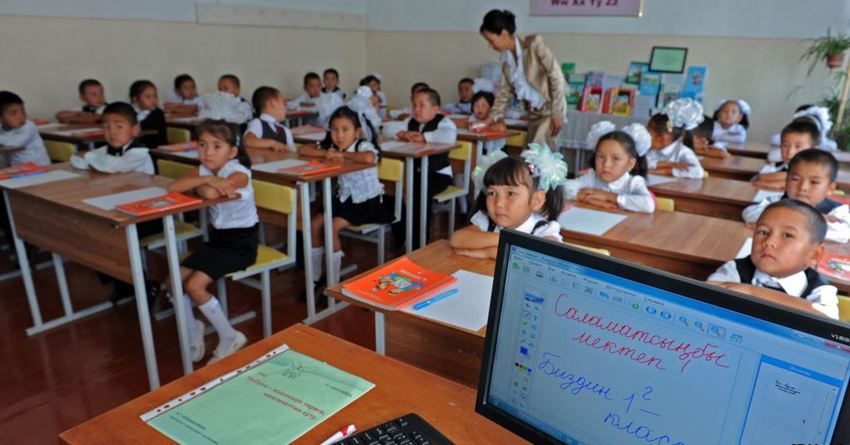Set your mind for school after holidays: seven things that every parent can do
August 31, 2017, 06:00
It is really hard to go back to school after summer vacation, and even harder for those who just starts school. First-grader has to get used to a new rhythm of life, classmates and sitting in the class. "Read - the City" Internet-shop offers effective ways to help the student to tune in for studies after summer break.
1. Do not set your child for grades
Parents make a mistake when they say: "Go to school - you will get A!" Formal assessments are not the only reason to go to school. Knowledge is more important and is more attractive to a curious mind.
Tell your child how many interesting things he can learn. Share your discoveries, build assumptions, respect the child hypotheses about how everything works.
"You can not learn anything without making a few mistakes or not changing your actions depending on the desired result. Who knows how to make mistakes, will be able to learn more. Denying the value of errors prevents you from learning. If mistakens are treated correctly, they will help to succeed." Daniele Novara, psychologist, author of "Do not shout at children".
2. Do not romanticize or dramatize
A schooler will get a lot of interesting things, but studying will require effort. Ability to concentrate and not to be distracted, to keep a static posture, to follow strict rules, to establish contact with unfamiliar children - this all is not given out to the child together with a new school bag. Be receptive to the fact that the child will need time to learn all this.
The game of lessons will help the schoolchild to adapt to school faster. Make a rule: daily engage in something that requires concentration of attention. This can be reading, cutting, performing tasks in workbooks. Best of all, if at the same time you will take care of your affairs next to you - the children learn by imitating.
3. Get ready for school together
Let the child choose notebooks, a pencil case and a backpack on his own, but under your approving comments. Let him help to equip his workplace and monitor the order. By participating in the process of preparing for the school, he quickly realizes that something important is being prepared, and this concerns him personally.
"The formula is simple: first you do something with the child, then he does it himself, and you encourage and help him if necessary. And finally, he does everything alone, and you are proud of him." Anna Bykova, a child and family psychologist, the author of the "Independent Child, or How to Become a "Lazy Mother" book.
4. Give an opportunity for self-expression
Monotonous everyday life, a unified school uniform, classes in which the child acts as part of a group is not easy to adapt to the new regime. Cute little things like bright pencils, a pencil-case-fish, an eraser in the form of a cake, a notebook with a cat on the cover should be helpers. Among the stationery, there must be something that will suit your schoolchild. Its features will help to cope with school problems, if only you go beyond the general framework and look at the problem from a special angle.
"One boy came up with a game: "When I solve the problems, the numbers are soldiers. And I'm a commander. The answer is a fortress that I must take. If I don't get answer, I collect the broken army again, draw up a new battle plan and conduct the attack. Poems that I have to learn by heart are airplanes. If I learn a poem without an error, I take a height of three kilometers. When I write, I'm a chauffeur. The rewritten letters and words are the passed way." Janusz Korczak, teacher, educator, and author of the books on child psychology.
5. Organize the workplace
At home the schoolboy should have a comfortable table and chair, a bookshelf and a locker for necessary things. The workplace should be bright and pleasant: decorate the wall with cute posters, collect stationery sets together, put your favorite books in a prominent place. And take care that it will be the place where the child does won't only do the necessary things (lessons), but also things that he loves.
6. Go to school in advance
Today, many children adapt to the school on special preparatory courses, which are led by their future teachers. But even if you did not attend such courses, go with the child to school. Meet the new place, find a wardrobe and a dining room together, stroll around the classrooms and sit at the desk. Do not forget to express your joy aloud to the coming changes and to the fact that your child becomes big and independent.
"Orientation strategies in unusual places are different for boys and girls. Boys, of course, are more expansive and live with a sense of the boundlessness of the world. Uncertainty does not frighten them, but sets them on positive mobilization. Girls perfectly remember everything that happens to them, but in their memory objective picture is not stored, instead they remember a story of impressions about what and how it happened." Olga Makhovskaya, child psychologist, author of "Hear, Understand and Be Friends with Your Child"
7. Be an Assistant and a Friend
Do not take the assessing position in the preparation of the child for school - he is assessed by the teacher. Be close, share expectations and dispel fears, participate in the process as needed. Show that you also went to the school, share his feelings and are ready to help hime in any situation. Take on board the advice of psychologists, but remember that only you can understand what your child needs. It's enough just to listen to him better.